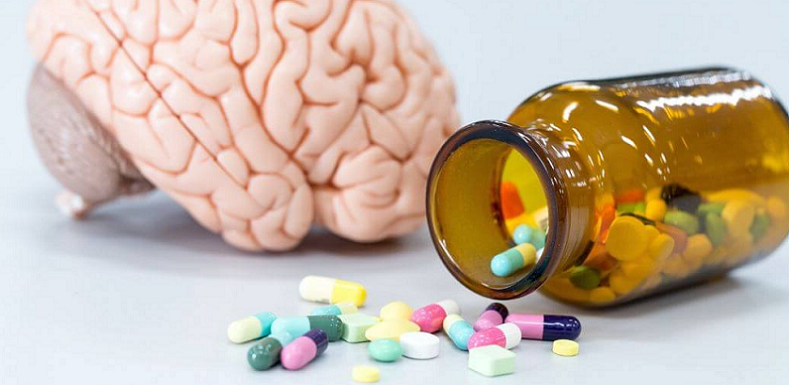
Nootropics, also known as “smart drugs” or cognitive enhancers, have gained significant attention in recent years for their potential to improve cognitive function, memory, and focus. While many people have experienced positive outcomes from using nootropics, it is essential to understand that these substances also carry potential risks and side effects. Here we delve into the potential dangers of nootropic use, discussing common side effects, long-term effects, and precautions one should take before starting.
Contents
Introduction to Nootropics
Nootropics, often referred to as “smart drugs” or cognitive enhancers, are a diverse group of substances that claim to improve cognitive function, memory, and focus. The term “nootropic” was first coined by Dr. Corneliu E. Giurgea in 1972, derived from the Greek words “nous” (mind) and “tropos” (bending). Over the years, the popularity of nootropics has increased, and so has the variety of substances that fall under this category.
Definition and Background of Nootropics
Nootropics can be broadly defined as substances that enhance cognitive function without causing significant side effects or addiction [1]. They can include synthetic compounds, natural supplements, or even everyday substances like caffeine. Nootropics are believed to work by influencing various neurotransmitter systems in the brain, thereby improving cognitive performance. The use of nootropics has been popular among students, professionals, and individuals seeking to enhance their mental abilities.
Popular Nootropics and Their Uses
There are a wide variety of nootropics available, each with unique mechanisms of action and potential benefits. Some of the most well-known nootropics include:
- Piracetam: The first synthetic nootropic, piracetam, is thought to improve memory and learning by increasing the production of acetylcholine, a neurotransmitter essential for cognitive function.
- Modafinil: A prescription medication originally designed to treat sleep disorders, modafinil has gained popularity for its off-label use as a cognitive enhancer. It is believed to increase alertness and focus by stimulating the release of certain neurotransmitters, such as dopamine and norepinephrine.
- L-Theanine: This natural amino acid, found in green tea, is known for promoting relaxation without sedation. When combined with caffeine, L-theanine may improve attention, focus, and cognitive performance.
- Bacopa Monnieri: An herbal supplement with a long history of use in traditional Ayurvedic medicine, Bacopa Monnieri is believed to enhance memory, learning, and overall cognitive function by modulating specific neurotransmitters and enhancing synaptic communication.
- Caffeine: A widely consumed stimulant, caffeine is often considered a nootropic for its ability to improve alertness, focus, and reaction time.

Understanding the Potential Risks
Despite the potential cognitive benefits of nootropics, it is crucial to consider the possible risks associated with their use. Individual reactions to nootropics can vary widely, and some users may experience side effects or interactions with other medications. Moreover, misuse and overdose can lead to more severe consequences.
Individual Differences and Sensitivities
Each person’s response to nootropics can differ due to factors such as genetics, underlying health conditions, and unique brain chemistry [2]. For instance, a substance that boosts cognitive function in one individual may cause adverse effects in another. It is essential to be aware of your sensitivities and to start with a low dose when trying a new nootropic. Monitoring your reactions and adjusting the dose accordingly can help mitigate potential risks.
Dependency and Addiction Risks
While many nootropics are considered to have a low risk of dependency and addiction, some substances, particularly stimulants like modafinil and caffeine, can lead to tolerance and dependence with prolonged use. Users may experience withdrawal symptoms when discontinuing these substances, and the risk of addiction can increase if nootropics are misused or taken in excessive doses. It is essential to follow recommended dosages and consult a healthcare professional if you are concerned about dependency.
Interactions with Other Medications
Nootropics can interact with other medications, leading to potentially dangerous side effects or reducing the effectiveness of the other drugs [3]. For example, modafinil can interact with certain medications, such as hormonal contraceptives, leading to decreased effectiveness. Before starting any nootropic regimen, it is essential to discuss potential interactions with a healthcare professional, especially if you are taking prescription medications or have a pre-existing medical condition.
Misuse and Overdose
Taking excessive doses of nootropics or combining multiple substances without proper guidance can lead to adverse effects or even overdose [4]. Misuse of nootropics, particularly stimulants, can result in symptoms such as increased heart rate, high blood pressure, and even seizures. It is crucial to follow recommended dosages and consult a healthcare professional if you experience any severe or concerning side effects.
Being aware of these potential risks is essential for making an informed decision about nootropic use. In the next section, we will discuss some common side effects associated with nootropics and how they can impact your overall well-being.

Note: If you’re looking for a great resource for summaries on all the popular (and many not so well-known) nootropics and peptides, investigate the Dopamine Club. The site is unique in that not only are the supplement summaries based on scientific papers and research (with links to those sources), but they also each include user feedback. So it has both research and anecdotal information. Every supplement summary includes Effects, Effectiveness, Dosage & Administration, and Side Effects sections.
Common Side Effects of Nootropics
While many users report positive cognitive benefits from nootropics, it’s essential to be aware of the potential side effects. Some nootropics can cause both physical and cognitive side effects, which may vary in severity depending on the individual and the substance.
Physical Side Effects
Nootropics can cause a variety of physical side effects, some of which are mild and short-lived, while others may be more severe. Common physical side effects include:
- Headaches: Headaches are a common side effect of some nootropics, particularly those in the racetam family, such as piracetam. This may be due to an increase in acetylcholine production, which can cause blood vessels in the brain to constrict. Supplementing with choline, a precursor to acetylcholine, may help alleviate headaches associated with racetam use.
- Insomnia: Stimulant-based nootropics, such as modafinil and caffeine, can cause insomnia or disrupted sleep patterns, especially when taken later in the day. It is crucial to monitor your sleep quality and adjust your dosing schedule accordingly to minimize sleep disturbances.
- Gastrointestinal Issues: Some nootropics can cause gastrointestinal side effects, such as nausea, stomach cramps, or diarrhea. These issues may be alleviated by taking the nootropic with food or reducing the dose.
Cognitive Side Effects
In addition to physical side effects, nootropics can also cause cognitive side effects. Some common cognitive side effects include:
- Brain Fog: Paradoxically, some users may experience brain fog or mental fatigue when using nootropics. This can be due to an imbalance in neurotransmitter levels or an individual’s unique brain chemistry. If you experience brain fog while using nootropics, it may be necessary to adjust the dose or discontinue the substance.
- Memory Impairment: While many nootropics are purported to enhance memory, some users may experience the opposite effect. This may be a temporary side effect or an indication that the particular nootropic is not well-suited to the individual. Monitoring your cognitive performance and adjusting your nootropic regimen as needed is essential.
- Anxiety and Mood Swings: Some nootropics, especially stimulants, can exacerbate anxiety or cause mood swings in susceptible individuals. It is essential to be aware of your emotional state when using nootropics and to consider alternatives if you experience negative emotional side effects.

Long-Term Effects of Nootropics
While many users report cognitive benefits from nootropics in the short term, the long-term effects of these substances are not well-understood. Due to the relatively recent popularity of nootropics, there is a lack of longitudinal studies and conclusive evidence about their long-term safety and efficacy.
Lack of Longitudinal Studies
Most research on nootropics has focused on short-term outcomes, with limited data on their long-term effects. This is due in part to the relatively recent emergence of many nootropics and the challenges associated with conducting long-term studies on human subjects. As a result, the long-term safety and efficacy of many nootropics remain unknown [5].
Potential Brain Alterations
Chronic use of nootropics could potentially lead to alterations in brain function or structure [6]. For example, stimulant-based nootropics, such as modafinil and caffeine, have been associated with changes in dopamine receptor density in animal studies. While the implications of these findings for human users are unclear, they raise concerns about the potential long-term impact of nootropic use on brain function.
Implications for Cognitive Health
Despite the lack of conclusive evidence about the long-term effects of nootropics, some researchers have raised concerns about their potential impact on cognitive health. For example, there is a possibility that chronic nootropic use could mask underlying cognitive decline or even contribute to it if users become reliant on these substances. Additionally, the long-term effects of interactions between nootropics and other medications or substances are not well-understood.
Precautions to Minimize Risks
Although nootropics have the potential to enhance cognitive function, it is essential to take precautions to minimize the risks associated with their use. By following these guidelines and working with a healthcare professional, you can make informed decisions about incorporating nootropics into your cognitive enhancement strategy.
Consultation with a Medical Professional
Before starting any nootropic regimen, it is crucial to consult with a healthcare professional, especially if you have pre-existing medical conditions, are taking prescription medications, or have a history of substance abuse. A healthcare professional can help you determine the appropriateness of nootropics for your specific situation, guide you in selecting the right substances, and monitor your progress throughout your nootropic journey.
Start with Low Doses
When trying a new nootropic, it is essential to start with a low dose to minimize the risk of adverse effects [7]. Gradually increasing the dose based on your individual response and tolerance can help you find the optimal dosage for your needs while reducing the likelihood of side effects.
Monitoring and Adjusting Use
Regularly monitoring your cognitive performance and overall well-being while using nootropics is crucial to ensure their effectiveness and safety. If you experience side effects or do not notice any cognitive benefits, it may be necessary to adjust the dosage or discontinue the nootropic. Working with a healthcare professional can help you make these decisions more effectively.
Avoiding Unregulated and Unknown Sources
Purchasing nootropics from reputable sources is essential for ensuring the quality and safety of the substances. Unregulated or unknown sources may provide products that are contaminated, counterfeit, or contain inconsistent dosages. Before purchasing any nootropic, research the supplier and their reputation to minimize the risk of consuming potentially harmful substances.
References
[1] Nootropics as Cognitive Enhancers
[2] The Downsides of Cognitive Enhancement
[3] Can I Take Nootropics With My Medications?
[4] Nootropics for Jet Lag: How to Maintain Cognitive Function During Long-Distance Travel
[5] Long-term safety of ‘smart drugs’ unknown
[6] How Do Nootropics Affect the Brain, and Are There Side Effects?
[7] Performance enhancement at the cost of potential brain plasticity

